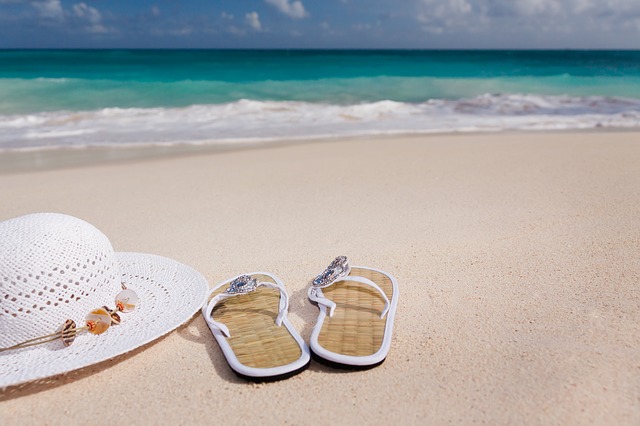
Summer is approaching and with many people choosing to head south this summer, heat, water and temperature changes are of special concern when it comes to your hearing devices. While you may be ready for fun in the sun, are your hearing aids ready as well?
Protection from Water, Oil, Sweat, Salt & Sand
Summer activities especially those at the beach or the pool, can damage or destroy hearing aids. Water, oil, salt, sweat and sand can corrode contact points, destroy the microphone and receiver and clog tubes. Fortunately, some hearing aid manufacturers have already taken measures to ensure your hearing aids are suitable for an active, warm outdoors environment. One example of hearing aid protection is a special process called nano-coating, which protects against moisture and other heat elements which might be harmful to hearing aids.
What is Nano-Coating?
• Nano-coating is a liquid repellant that was first developed for the military. It works by lowering an object’s surface energy, causing the liquid to adhere to itself rather than the surface it is applied to.
• No visual change to your hearing aid as the coating is 1,000 times thinner than a human hair & invisible to the human eye.
• Prevents corrosion damage
The good news is that as of 2013, sixty percent of the world’s hearing aids offered at least some nano-coating protection.
Questions to Ask Your Audiologist as You are Assessing Your Hearing Aids’ Moisture Resistant Potential
• Do your hearing aids have nano-coating, and at what level?
• Are the tubes made of materials which are resistant to sweat and moisture?
• Is the receiver protected from substances such as moisture and earwax?
• Is the amplifier sealed in water-proof material?
• Are your hearing aids labeled “water resistant” or “water-proof?” Because water resistant hearing aids resist but do not entirely prevent water from penetrating.
Protection from the Wind
Wind noise is another factor to consider before you leave on your getaway. Whether you are playing golf, sailing, hiking or just walking on the beach there is a likelihood that rushing wind noise could interfere with your ability to hear the sounds you want to hear. This is where a feature called wind noise reduction comes in handy. Some hearing aids have special features that reduce the wind noise while enhancing other sounds. Whether it is special setting for a windy environment, adjusting the microphone placement or purchasing accessories that will reduce the wind noise in your hearing aids, your hearing healthcare professional can give you advice on the best way to go about making sure wind noise doesn’t affect your planned activities.
Fun in the Sun Accessories
If your hearing aids don’t have nano-coating, or if you just want an extra level of protection from the elements, consider these accessories that will help protect your hearing aids during your spring break getaway and beyond.
• Sweat bands, which are essential moisture wicking pouches that easily slip over your behind the ear hearing aids
• Portable dehumidifier or drying kit
• A portable water-proof safe to protect hearing aids at the beach or pool
Let your hearing healthcare professional know about any hobbies or planned activities that would require your hearing aids to be water repellent, or ask what level of protection your existing hearing aids have. He or she can help you make an informed decision about purchasing new hearing aids or modifying your existing hearing aids with water repellent or water-proof accessories. Call us today with any questions at 316-684-2838.
Source: Healthy Hearing
